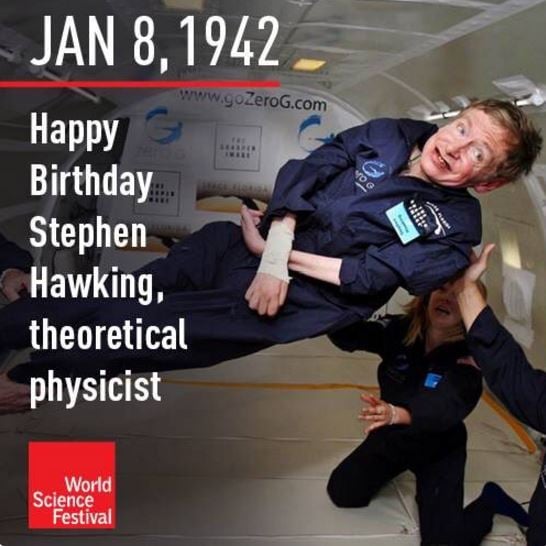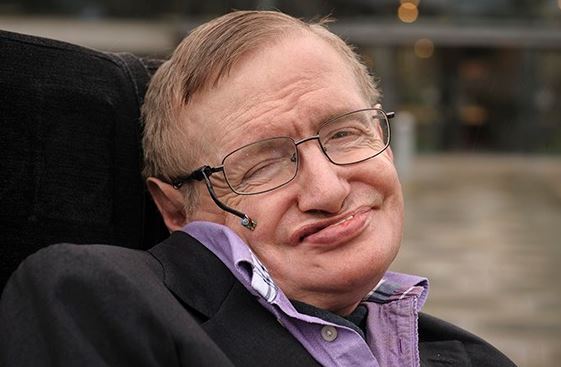Stephen Hawking is closer to being awarded the Nobel Prize, as evidence is emerging that may prove his work into radiation from black holes. His theory that black holes emit radiation (called ‘Hawking Radiation’) – which would mean that smaller black holes would evaporate – needs proof before he is awarded the Nobel Prize for Physics.
The British theoretical physicist, cosmologist, author and Director of Research at the Centre for Theoretical Cosmology within the University of Cambridge, said at a BBC Reith lecture at London’s Royal institution that evidence supporting his theory was emerging, according to The Times.
While talking about his theory and the evidence he is trying to obtain, Prof. Hawking displayed a picture of the prizewinner’s medal.
 Stephen Hawking was born on 8th January, 1942. It was his 74th birthday two days ago. (Image: twitter.com/_Four_Horsemen)
Stephen Hawking was born on 8th January, 1942. It was his 74th birthday two days ago. (Image: twitter.com/_Four_Horsemen)
Hawking Radiation
Prof. Hawking states that black holes are not entirely black after all. They emit radiation due to the quantum effect near the ‘event horizon’ (the last visible area around a black hole). This causes them to lose mass and eventually vanish altogether.
He predicted that energy fluctuations from the vacuum causes the generation of particle-antiparticle pairs of virtual particles near the black hole’s even horizon. While one of the particles falls back into the black hole, the other escapes, before they have a chance to annihilate each other.
As the particle that escapes has positive energy, the one that gets absorbed by the black hole has negative energy (relative to the universe outside). This results in the black hole losing energy, and consequently mass (because E = mc2).
He made this discovery and consequently announced his theory in the 1970s. Unfortunately, nobody has yet been able to verify his predictions.
Scientists had previously thought that it was impossible for black holes to get smaller because nothing could escape their enormous gravity.
 According to hawking.org.uk: “Professor Hawking has twelve honorary degrees. He was awarded the CBE in 1982, and was made a Companion of Honour in 1989. He is the recipient of many awards, medals and prizes, is a Fellow of The Royal Society and a Member of the US National Academy of Sciences.” The Nobel Prize for Physics would be the icing on the cake.
According to hawking.org.uk: “Professor Hawking has twelve honorary degrees. He was awarded the CBE in 1982, and was made a Companion of Honour in 1989. He is the recipient of many awards, medals and prizes, is a Fellow of The Royal Society and a Member of the US National Academy of Sciences.” The Nobel Prize for Physics would be the icing on the cake.
CERN’s Large Hadron Collider (LHC) in Switzerland was revamped last year. Its scientists are exploring new horizons with an improved 14 GeV working energy level.
CERN scientists are hopeful they will find mini black holes in the remains of smashed particles. If they manage to do this, they can study them and perhaps prove Hawking’s theory.
Prof. Hawking hinted that after a 40-year wait, proof of his Hawking Radiation is close.
Video – Hawking presenting idea on black holes
This is a video of a presentation made at the Hawking Radiation conference, which was co-hosted by the theoretical physics institute, Nordita, and the University of North Carolina, on the campus of the KTH Royal Institute of Technology in Stockholm, Sweden.
